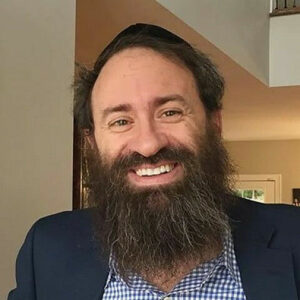
By Rabbi Zalman Bluming
As the Oct. 7 Hamas terrorist attack on Israel weighs heavy on our hearts and the war in Israel is receiving 24/7 news coverage around the world, there are shared emotions many of us are grappling with: isolation, shock, heartbreak and grief.
Some of us are devastated as we stare at our social media screens, unable to comprehend what we are seeing. Especially difficult for many has been the response or lack of response from our friends in the aftermath of this horror.
Hamas’ attack on Israel was catastrophic. No Jew with a heartbeat can disregard its impact. The disturbing reality is that, in our anguish, many Jewish college students have been met with a mix of silence, indifference and downplaying or diminishing the severity of the terror. The cries coming from those in our community are falling on deaf ears or worse. Nowhere is this more apparent than in the academic world.
University professors singling out Jewish students, claiming Hamas’ indiscriminate terrorism is justified; students reduced to tears by images of murdered Israeli children only to be told it was their fault; and college peers cheering on acts of terror are just some of what Jews on college campuses are experiencing.
Such frighteningly commonplace behavior is not just shocking but completely out of sync with the way humanity generally responds to acts of terrorism, from the horrors of 9/11 to the barbaric beheadings we have seen ISIS commit in recent years. People generally rush to comfort and console those whose communities have just experienced terror and massive loss of life.
There seems to be an exception, however, when Jews are at the receiving end of such atrocities.
For those in college or an institution of higher education, you may wonder how to stand up for yourself amidst the storm of hatred thrown at Israel for its acts of self-defense. The question arises: “Where do I stand when confronted with questions from my peers?”
Some of your classmates may ask you, “Why doesn’t Israel show restraint and stop the bombings?” Imagine your home is under siege, your family in danger. Should one remain passive when innocent civilians were slaughtered just because they were Jewish? Israel’s defense is in response to the biggest loss of Jewish life in a single day since the Holocaust. Israel is simply aiming to safeguard its citizens.
Your professor may challenge you as to “why Israel does not just concede to Hamas’ demands.” A close look at Hamas’ charter reveals its desire to eradicate the Jewish people. Making such a concession is not just suicidal but genocidal. This is not about a two-state solution, it is about a final solution.
A family or friend may ask, “How does Israel justify civilian casualties?” In fact, Israel takes unprecedented measures to minimize civilian casualties. The tragic loss of innocent lives is a direct consequence of Hamas using its own people as human shields. Recently, Palestinian Islamic Jihad fired a rocket that misfired and struck a hospital, killing a reported 500 people. The media initially blamed it on Israel and has only now begun to apologize for this lie. This tells you all you need to know.
You may even find yourself asking, “Doesn’t Israel realize their actions may create more terrorists?” But again, we must remember, a Hamas victory means the eradication of all Jews. Defending one’s nation and people is a duty, even when the world seems to be telling you otherwise. In the face of an existential threat, a nation must take decisive action to protect its citizens. In this case, the citizens in question are not just those in Israel, but Jews around the world. This is not a question of right or left, it’s a question of right and wrong. History has conclusively proven it is entirely possible for the Jews to be right and the entire world wrong.
As you grapple with these complexities, remember your lineage. Our patriarchs and matriarchs — Abraham, Isaac, Jacob, Sarah, Rebecca, Rachel and Leah — stood up to hatred and indifference with pride, dignity and resilience. Their legacy reminds us of our own strength, our people’s unity and our unyielding spirit. We are the People of the Book, which has helped us persevere and survive against all odds.
The Lubavitcher Rebbe taught that, when faced with antisemitism, we should do more to increase our displays of Jewish pride, not less. Doing mitzvahs like wrapping tefillin, affixing a mezuzah to your doorpost, lighting Shabbat candles and engaging in Torah learning are not mere acts of faith or “commandments,” but a demonstration of spiritual camaraderie with our brethren in Israel. The Hebrew word “mitzvah” carries the connotation of tzavta, which means “connection” or “joining.” Mitzvahs connect us with Hashem and with the rest of the Jewish people.
Recall the strength of those who came before you and recognize the power within you. You are a beacon of hope and resilience, part of a legacy that has faced and overcome adversity time and time again. In moments of doubt, remind yourself of who you are, where you come from and the strength that lies within. You have so much to contribute, and now, more than ever, your voice, your courage and your truth as a proud Jew are needed.
Rabbi Zalman Bluming is the director of Chabad at Duke University & Durham Chapel Hill. This originally ran on JNS.org.





